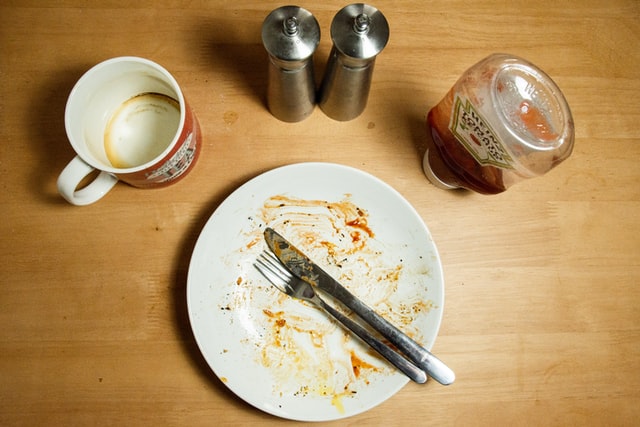When you are on the dieting roller coaster, you are not always aware of the mindset that may have been with you since childhood and how it still impacts you today. These are the things that you have been taught about food or “rules” with food from a young age. These taught food rules are dependent upon what your parents’ food relationship was and how they were raised with food. This is the generational trauma with food that gets passed down without realizing the impact that it has, until now. You are the one who is courageous enough to stop the food trauma from being passed any further. It ends with you.
One of the most common food rules I see is what I call the “The Clean Plate Club.” There are no perks to belonging to this club. Only feelings of guilt, pressure, sometimes extreme fullness, and growing resentment towards the family member(s) that are leaders of your clean plate club. This resentment can be fueled even more if you received mixed messages when you were growing up about food. If one or both of your parents told you that you needed to watch what you were eating, but then you were expected to clean your plate. This creates a turbulent relationship with food and confusion on how you are “supposed to eat.”
See, when you are told how much to eat, you never grow up trusting that your body will tell you how much to have. You are forced to feel the guilt of the starving children in Africa, whose situation was somehow improved by eating every morsel of food on your plate. This creates a lot of trauma around the dinner table. It becomes more about pleasing than honoring what is right for your body. In fact, when you are taught to clean your plate, your body is not even factored into consideration.
When you grow up with this history, you become an excellent rule follower of diets. You have been well trained to eat what you have been given, except now, the amounts have changed. You likely get less. But you do what you are told to do. You ignore your body telling you it needs more and eat the allotted amount.
This is one of the biggest struggles people have when they are not dieting or even finding their way to a non-diet approach to food. They have this well-worn pathway in their brain that tells them to finish what is on their plate. That they are wasting money and wasting food if they don’t finish it, they typically end up in an overly full place versus feeling comfortable. Still, they feel this familiar feeling of accomplishment because they followed the rule of cleaning their plate.
This is where I would ask you to pause.
Think about how you feel about this rule as an adult and how you felt about it when you were a child.
How has this impacted your eating behaviors?
How has this impacted your listening to your body and its fullness cue?
Can you distinguish what was your parent’s rule and what you have taken on as your rule?
How can you honor and talk to the “little child” inside you that is still following the rule?
These are good questions to reflect upon. The separating is essential. It is important to look at what was taught to you and what you have carried on. Maybe you can extend forgiveness, or at the very least, understanding to your parent(s) because you know how they were brought up with food. Remember, the generational traumas that are taught and carried on.
Most importantly, think about what that little child inside of you is full of guilt and fear. What do they need? Maybe they need to be told they are worthy no matter what. That they are not “good or bad” based on if they cleared their plate, that they are worth however much money they might be throwing out in the trash to listen and honor your body. The food will either be going to waste in you or the garbage, and you are certainly more valuable than the trash.
Reestablishing this relationship is all about the pause. It is about learning to tolerate the discomfort that might be there with leaving food on the plate. It is learning to stay “in” your body to tell when you are satisfied and knowing that this takes some experimenting to find. It is learning to believe that you are worthy of honoring and of listening to. Most of all, it is learning to trust your body and give it and yourself grace as you push aside the rules and find freedom and liberation from being an ex-member of the clean plate club.


